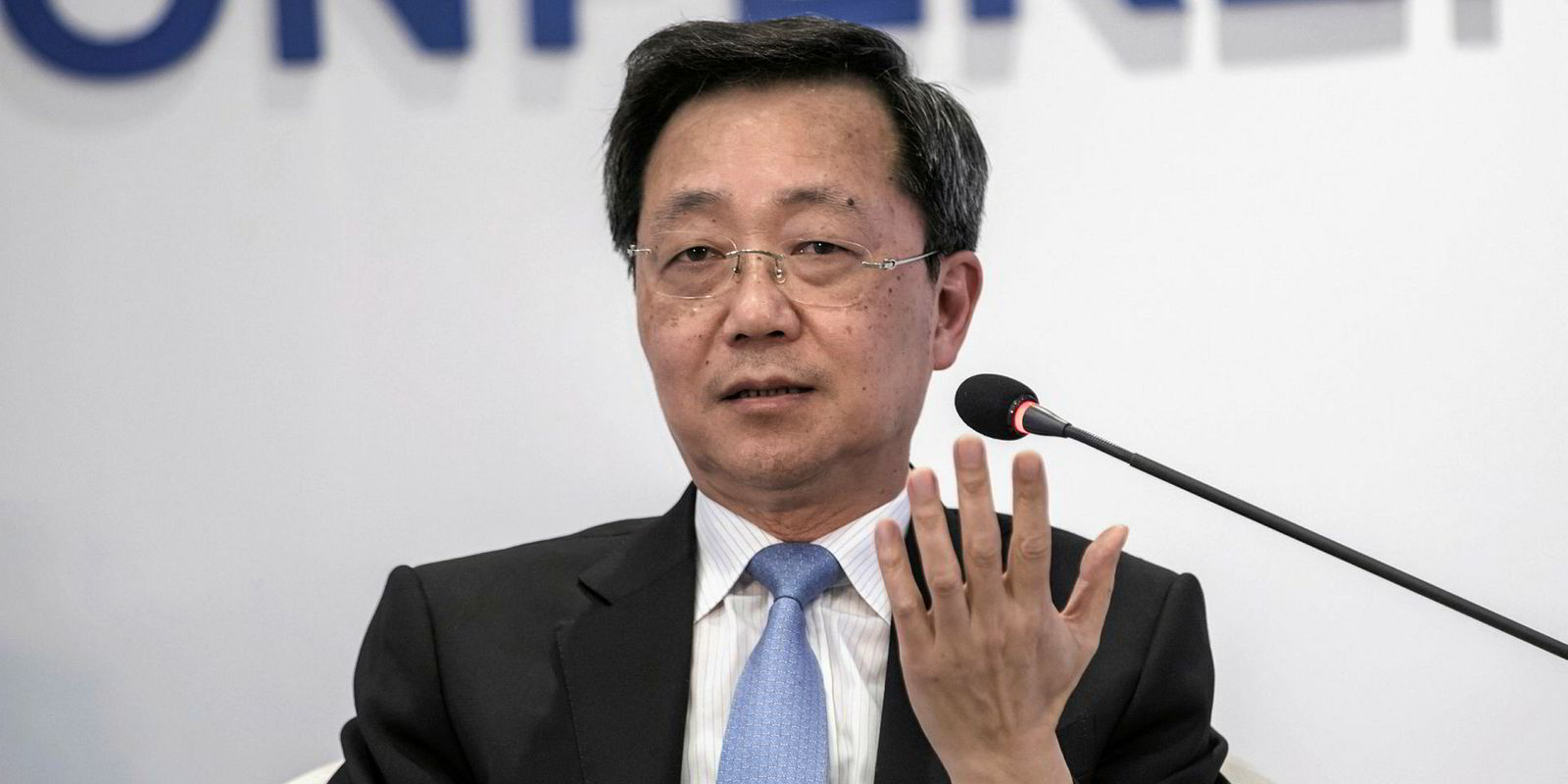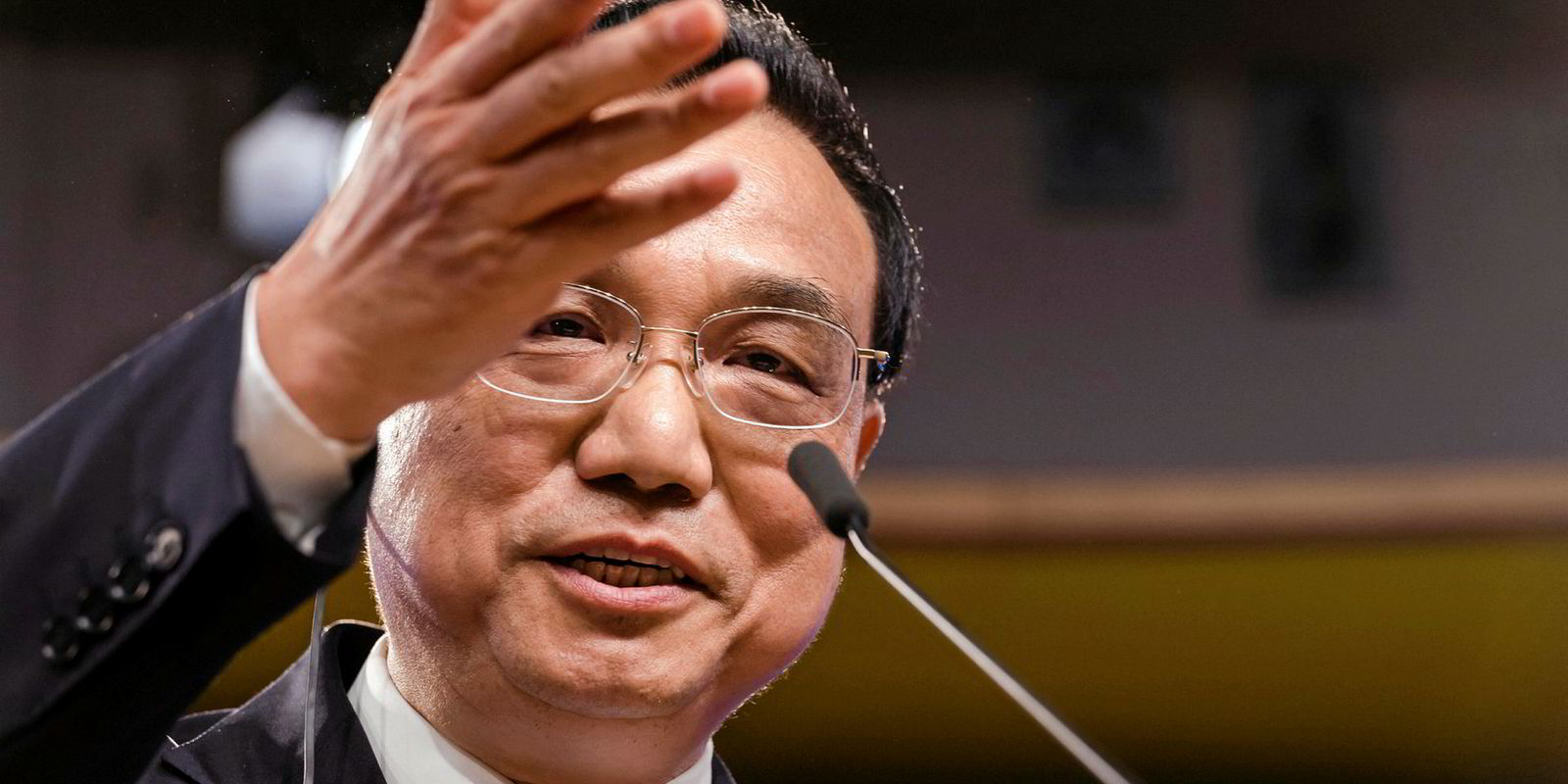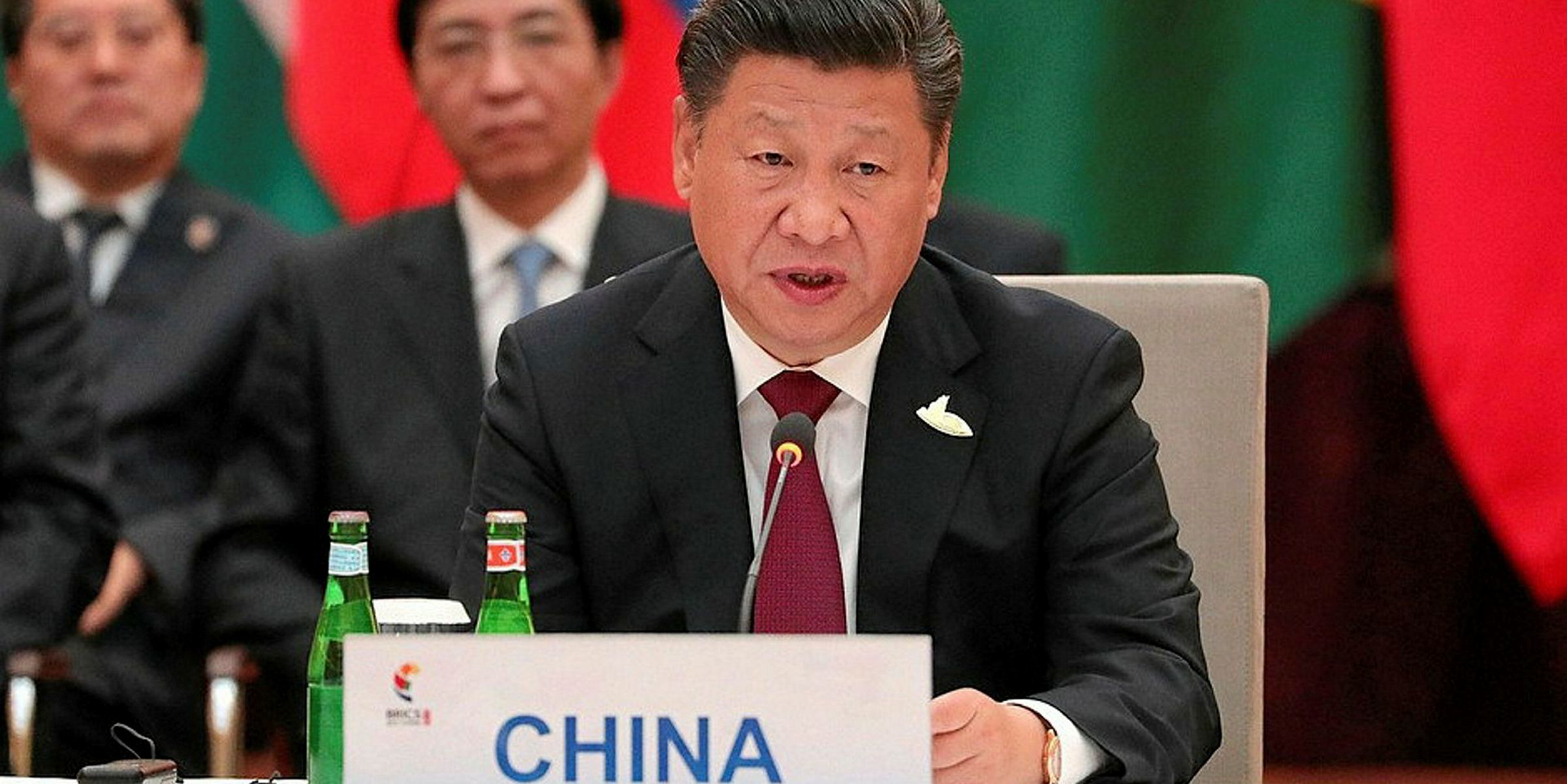China Cosco Shipping is behaving like a shipowner that outlived its problems. And who with better right? It's the world's biggest shipowner by some measures and enjoys the political and financial support of China's party-state.
And that at a time and place when China's central state-owned enterprise (SOE) policy is to support national champions in strategic industries, streamline them by hiving off non-core subsidiaries, and encourage them to overcome the world.
Cosco is also one of the key bearers of Party Secretary Xi Jinping's banner in his signature Belt and Road Initiative (BRI).
Financial analysts and business journalists in China may still sometimes remind their readers of the unpleasant nickname "King of Losses" that Cosco's main stock-listed entity earned after former chairman Captain Wei Jiafu oversaw one of the most catastrophic long positions in the history of ship chartering.
But those days are gone, aren't they? Swept away behind the massive restructuring and merger of Cosco and China Shipping. Many of the most vulnerable parts of the resulting leviathan are now under direct state ownership, with no non-state shareholders to complain about their money-losing and illiquid shares, and any remaining or future commercial blunders beyond the eye of prying journalists.

Other shipping SOEs may be more transparent, commercially efficient and globally minded. But it is Cosco, the flag-carrier, that gets the support for projects such as the friendly takeover of Orient Overseas Container Line.
And when rival global liner companies walk the valley of the shadow of the ULCVs, and at last begin to slow down the race to order more of the container behemoths, it is Cosco that forges ahead with more orders and commissions designs for even bigger ships of 25,000 teu.
Because Cosco is a shipowner that outlived its problems. Like those overtonnaging problems of a decade ago.
Growing, not swelling
Meanwhile, Sinochem International Logistics (SIL) is the reverse of a shipowner that has outlived problems. It is being treated as a problem, whose owner is in the process of outliving it.
While the former Cosco and China Shipping were busy hiving off non-core diversions, SIL was still growing on the not yet streamlined trunk of state-owned chemical giant Sinochem International Corp.
"Growth is our culture," SIL general manager Xu Junfeng told TradeWinds less than three years ago.
But by growth, he did not mean mere swelling in size. Xu was then mounting a plausible challenge to the likes of Stolt-Nielsen and Odfjell with a shrewd new design that was meant to compete for 90% of the same cargoes their most advanced ships can carry, but with a lower cost base.
Maybe it was the market that stopped Sinochem. Maybe it was Sinochem's overconfidence in its marketing prowess. Or maybe it was too little support from its non-shipping leviathan of a parent.
China is the world's most populous country and the fastest growing very large economy. It has rapidly developed into the world's biggest ship financier, and not least has a wealth of shipping talent
But for whatever reason, those newbuildings that were going to make Sinochem a global player are now on time charter to Odfjell. Xu himself has departed the state-owned business world and taken lots of talent with him, and SIL is being taken over by a coal billionaire from Inner Mongolia who apparently felt that a fleet of advanced oceangoing ships is what was missing in his life.
Key staff have their doubts about what is behind their new owner Du Jiangtao's buy and whether he plans to continue operating under the Shanghai Junzheng International Logistics name, flip the whole company to a new owner, or to sell off its assets.
World leadership
In 2015, the Shanghai International Shipping Institute made headlines with a study predicting that China would lead world shipping by 2030. It does not seem either unlikely or alarming.
China is the world's most populous country and the fastest-growing very large economy. It, as a source or destination of a huge share of world cargo, has rapidly developed into the world's biggest ship financier, and not least has a wealth of shipping talent.
But as long as China's top shipping decisions are in the hands of loyal apparatchiks who are appointed and rotated like military officers and are rewarded more for swelling the world's fleet than for changing it, the question is whether state policy, which is meant to boost the country's shipping sector, will actually block the best efforts of its brightest lights.






